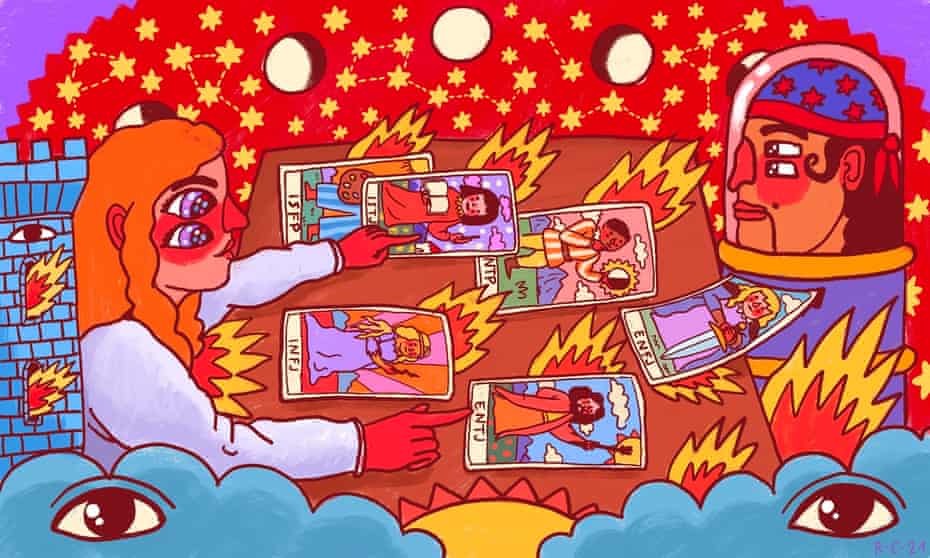 The MBTI’s different permutations amount to 16 types of personality, each with innate strengths and blind spots. Illustration: Ricardo Cavolo/The Guardian
The MBTI’s different permutations amount to 16 types of personality, each with innate strengths and blind spots. Illustration: Ricardo Cavolo/The GuardianDeemed ‘astrology for businessmen’ for some, lauded as life-saving by others, the personality tests are a ‘springboard’ for people to think about who they are
Iam a born executive. I am obsessed with efficiency and detached from my emotions. I share similarities with Margaret Thatcher and Harrison Ford. I am among 2% of the general population, and 1% of women.
People like us are highly motivated by personal growth, and occasionally ruthless in the pursuit. We make difficult partners and parents, but good landscape architects. We are ENTJs: extroverted, intuitive, thinking, judging – also known as the executive type or, sometimes, “the Commander”.
This, over a decade ago, was my auspicious entry into the world of the Myers-Briggs Type Indicator (MBTI). Based on psychiatrist Carl Jung’s theories of personality, the assessment maintains that we are all born with a preference for extroversion or introversion, intuition or sensing, thinking or feeling, and judging or perceiving.
The different permutations amount to 16 types of personality, each with innate strengths and “blind spots”. By understanding which one we are, so the theory goes, we might apply ourselves more effectively in our personal and professional lives.
As an insecure teenager, finding out my type online was like being handed an instruction manual
The business of “typing” people generates the Myers-Briggs Company a reported $20m annually from public and private institutions, militaries and universities, charities and sports teams who make use of it – not to mention 88 of the Fortune 100 companies. Away from the corporate world, the Myers-Briggs theory of personality has been embraced by enthusiasts as a hobby – even a way of life.
As an insecure teenager, finding out my type online was like being handed an instruction manual; ENTJ became as much part of my identity as my astrological sign. Even a decade later, I will still catch myself reaching for Myers-Briggs terms – talking about “thinkers versus feelers”, or having mostly “intuitive” friends.
About 50 million people have taken the MBTI since the 1960s; 2 million continue to do so every year. Why is the idea of there being just 16 types still so seductive? READ MORE